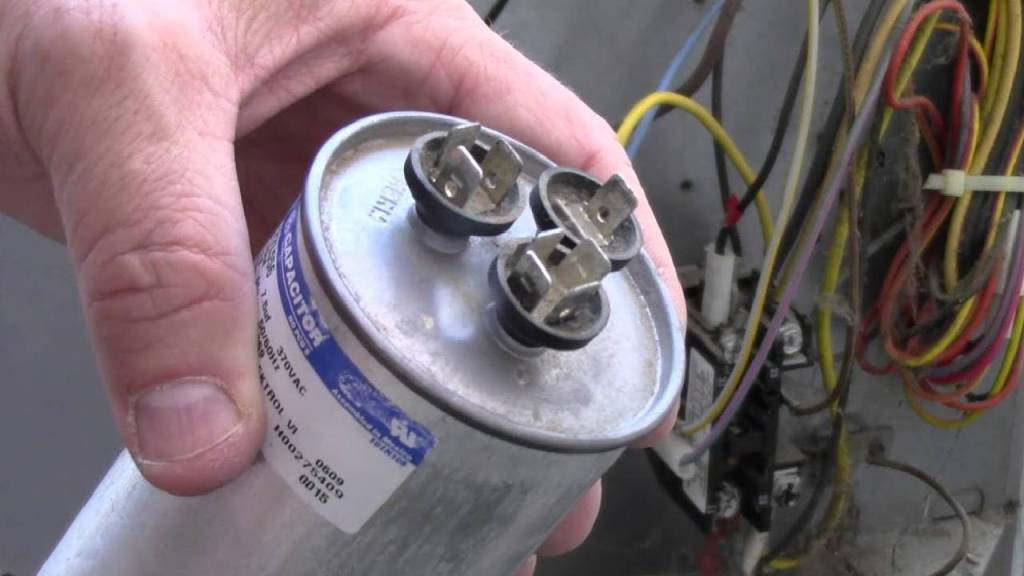Air conditioners have become indispensable components of modern living, providing comfort and relief from scorching heat. Behind the scenes, various intricate parts work tirelessly to keep our spaces cool and comfortable. One such crucial component is the capacitor. Often overlooked, capacitors play a pivotal role in the functioning of air conditioning units. Understanding their life expectancy is vital for maintaining the efficiency of Air Conditioner Capacitor and longevity of your cooling system.
What is an Air Conditioner Capacitor?
Before delving into the intricacies of its lifespan, let’s first understand what an air conditioner capacitor is and its significance in the cooling process. A capacitor is an electronic device that stores and releases electrical energy. In an air conditioning system, capacitors are responsible for starting the compressor and the condenser fan motor.
Types of Capacitors:
There are primarily two types of capacitors found in air conditioners: start capacitors and run capacitors. Start capacitors provide the initial jolt of electricity to start the motor, while run capacitors maintain a consistent electrical charge to keep the motor running smoothly.
Factors Affecting the Life Expectancy:
Several factors influence the lifespan of an air conditioner capacitor:
- Quality of Components: The quality of the capacitor itself is a significant determinant of its lifespan. Capacitors made from high-quality materials tend to last longer and perform more reliably than their cheaper counterparts.
- Operating Conditions: The environment in which the air conditioner operates greatly impacts the lifespan of its components. Factors such as temperature fluctuations, humidity levels, and exposure to contaminants can all affect the capacitor’s longevity.
- Voltage Fluctuations: Voltage spikes or fluctuations in the electrical supply can put undue stress on the capacitor, leading to premature failure. Installing a surge protector or voltage regulator can help mitigate this risk.
- Overuse or Underuse: Like any mechanical or electrical component, capacitors can wear out over time with extended use. Conversely, underuse or prolonged periods of inactivity can also cause degradation due to lack of regular operation.
- Maintenance Practices: Regular maintenance, including cleaning, lubrication, and inspection of electrical components, can significantly extend the life of an air conditioner capacitor. Neglecting proper maintenance can lead to accelerated wear and tear.
Average Lifespan:
The average lifespan of an air conditioner capacitor typically ranges from 5 to 15 years, depending on various factors. Start capacitors tend to have a shorter lifespan compared to run capacitors due to the higher stress involved in starting the motor.
Signs of a Failing Capacitor:
It’s essential to recognize the warning signs of a failing capacitor to avoid sudden breakdowns and costly repairs. Some common signs of a failing capacitor include:
- Difficulty Starting: If your air conditioner takes longer than usual to start or requires multiple attempts, it could indicate a failing start capacitor.
- Weak Airflow: A decrease in airflow or weak cooling performance may be attributed to a faulty run capacitor, hindering the operation of the fan motor.
- Unusual Noises: Strange noises such as humming, buzzing, or clicking coming from the air conditioner may signify capacitor issues, among other potential causes.
- Visible Damage: Physical damage such as bulging, leaking, or corrosion on the capacitor indicates imminent failure and necessitates immediate replacement.
Replacing the Capacitor:
Replacing a faulty capacitor in an HVAC system is a task that requires precision and expertise, typically carried out by a qualified technician. Capacitors play a vital role in the functioning of HVAC units, as they store and release electrical energy to start the motors and keep them running smoothly. When a capacitor malfunctions, it can lead to issues such as motor failure or inefficient operation. Therefore, it’s imperative to replace it promptly. Using a capacitor with the exact specifications as the original is essential to maintain compatibility and ensure the system operates at its best. Technicians must carefully match the capacitance, voltage rating, and other relevant specifications to guarantee optimal performance and prevent any further complications. With proper attention to detail and adherence to safety protocols, a skilled technician can efficiently replace a faulty capacitor, restoring the HVAC system’s functionality.
Conclusion:
In conclusion, understanding the life expectancy of an air conditioner capacitor is essential for maintaining the efficiency and reliability of your cooling system. By considering factors such as component quality, operating conditions, and maintenance practices, you can prolong the lifespan of your capacitor and avoid unexpected breakdowns. Recognizing the signs of a failing capacitor and addressing issues promptly can save you from costly repairs and ensure uninterrupted comfort during the sweltering summer months. Remember, a well-maintained capacitor is the key to maximizing the lifespan of your air conditioning unit.




Leave a comment